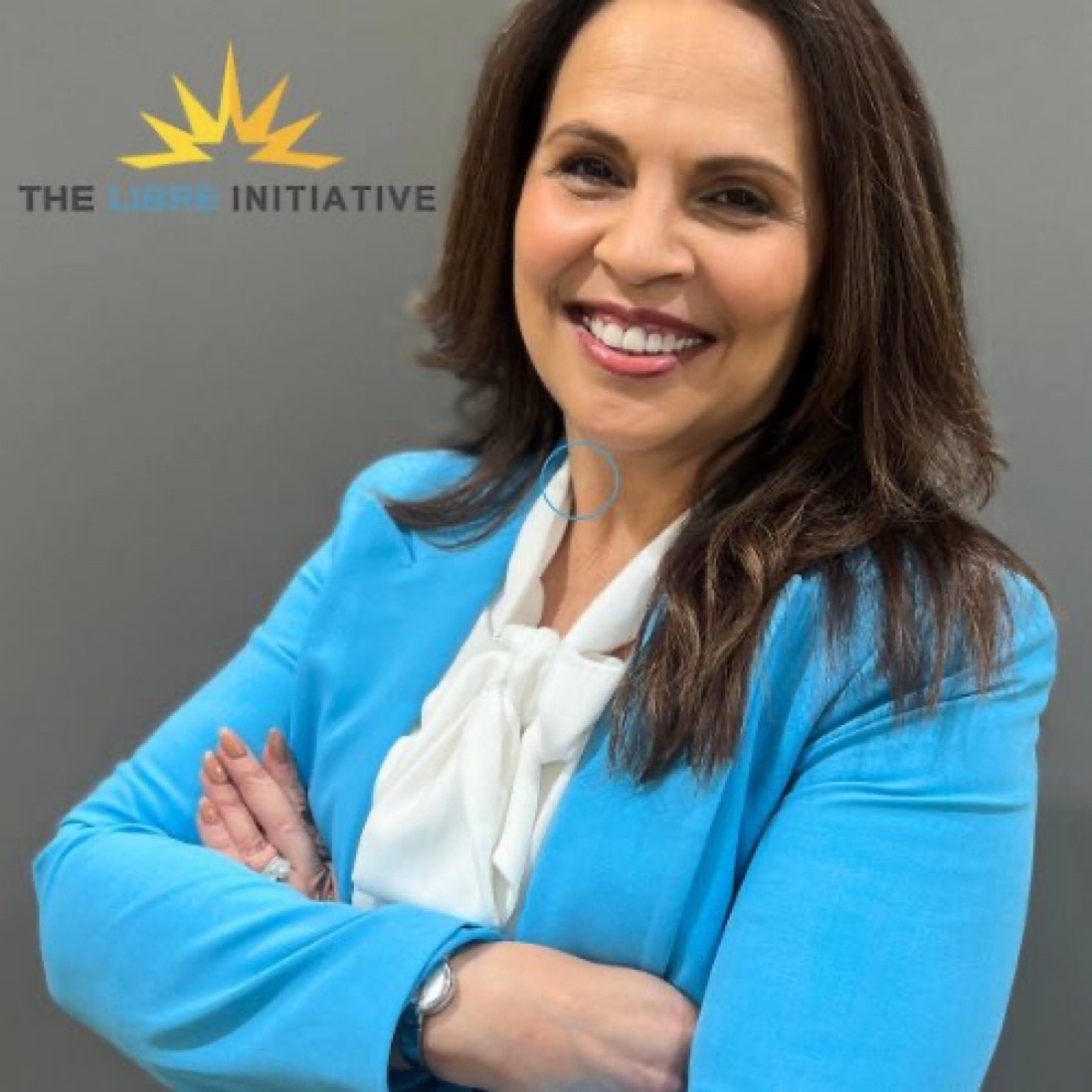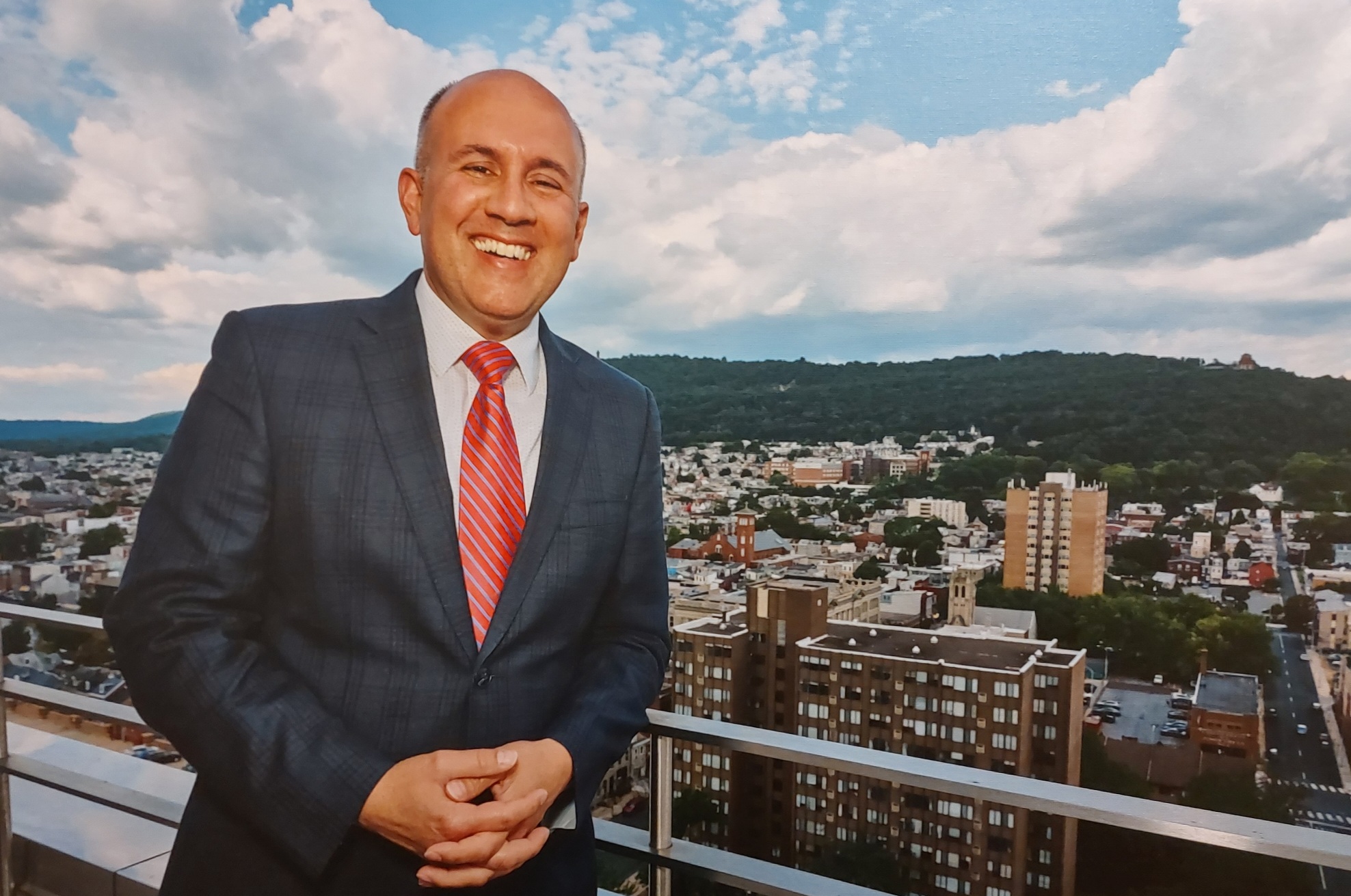Decision 2024
Latino Republicans, empowered by election, flex new political might in PA
The 2024 election cycle saw the début of several notable entries into the commonwealth’s Hispanic conservative sphere

PA Director Jennie Dallas and President Daniel Garza of Libre Initiative Libre Initiative
When GOP candidate Dave McCormick defied the odds to pull ahead of Democratic incumbent Bob Casey in the last leg of Pennsylvania’s crucial U.S. Senate race, few observers were considering the role played by the state’s rightward-shifting Latino electorate.
In retrospect, they should have. The 2024 election cycle saw the début of several notable entries into the commonwealth’s Hispanic conservative sphere – a nascent but ambitious bloc whose influence, in an era of razor-thin electoral margins, is outsized. These players include the Hispanic Republican Coalition of Pennsylvania, a grassroots organization established in 2022, and The LIBRE Initiative, the Latino outreach arm of Americans for Prosperity, a national political advocacy organization backed by the libertarian billionaire Charles Koch and his political network.
“There’s no doubt in my mind” that LIBRE’s involvement played a key role in McCormick’s win, said Jennie Dallas, the group’s inaugural Pennsylvania strategic director and the publisher of La Voz Latina Central, a Spanish-language newspaper distributed throughout the heavily Hispanic Lehigh Valley. Citing a statistic that 70% of Latinos feel the U.S. is going “in the wrong direction,” Dallas said LIBRE's 2024 entry into Pennsylvania – its 13th state branch – was “a matter of time” for the country’s largest center-right Latino organization.

“Anybody looking at Pennsylvania politics and voter trends could see the opportunity for Hispanic voters … and yet I saw a lot of people not taking action,” observed Albert Eisenberg, a Philadelphia- and Charleston-based political strategist who helped spearhead the HRCP and runs the political communications firm BlueStateRed. He said the coalition’s PAC invested $50,000 to elect Republicans in the commonwealth this year, with the focus on McCormick. Now, Eisenberg and his colleagues are looking to future races – with an eye not only to garnering Latino support for GOP candidates, but also to building a competitive bench of conservative Hispanic candidates.
While Latinos still overwhelmingly vote for Democrats, both nationally and in the commonwealth, Latino voters are trending rightward faster than other segments of the American electorate. In Philadelphia, where Democrats outnumber Republicans by 7 to 1, President-elect Donald Trump nevertheless garnered 22% of the vote in Latino-majority precincts in 2024 – nearly quadruple his showing in 2016.
Meanwhile, Trump handily won Berks County – home to Reading, a two-thirds-Latino city – while in the Lehigh Valley, Dallas said the Latino vote nudged 5 percentage points toward the GOP from 2020 to 2024, flipping Northampton County from Biden to Trump.
These numbers mirror a national shift that saw the Republican presidential candidate gain a whopping 14 percentage points with Latino voters from his 2020 showing – support that not only helped Trump clinch victory but was reflected in critical down-ballot support for Republicans at every level. In the 7th Congressional District, where nearly 1 in 5 residents is Hispanic, Eisenberg said his firm’s Spanish-language messaging helped state Rep. Ryan Mackenzie defeat Democratic incumbent U.S. Rep. Susan Wild.

“We now know that (Latinos) are swing voters,” said Eisenberg, “part of that multiethnic, multiracial working-class coalition.” Indeed, in an era when education level is more predictive of political affiliation than race or ethnicity, the fact that 56% of Latinos nationally have a high school diploma or less – versus 37% of Americans overall – further predisposes them, at least in theory, toward the GOP. This is also true of the fact that Hispanics are more likely to be small-business owners.
Pennsylvania’s 600,000-strong Latino electorate was almost certainly decisive in the victory of McCormick’s performance at the polls, which, as of press time, was the subject of an automatic recount. His barely-30,000-vote margin is less than the 100,000 Pennsylvania Latino voters LIBRE Action claims to have engaged personally this year; Dallas, a bilingual Pennsylvanian whose grandparents came from Puerto Rico, said her team knocked on 50,000 doors from Philadelphia to Pittsburgh, specifically focusing on the U.S. Senate race.

“Especially in the last few years, I’ve seen a huge amount of Hispanics coming out of the closet, if you will, and becoming more open to saying, ‘Yes, I’m a Republican,’” said Michael Rivera, who was elected Berks County commissioner in 2019. Like most Latinos in his corner of Southeastern Pennsylvania, he claims Puerto Rican heritage. But as an elected Latino Republican, Rivera is still a rarity: The vast majority of Pennsylvania’s Hispanic office-holders are Democrats.
The son of a Pennsylvania Dutch mother and a Puerto Rican father, Rivera grew up mostly on the island and got into politics while working at the Greater Reading Chamber of Commerce. He chose the GOP, he said, because “generally, speaking, the values of Latinos align a lot more with the Republicans than with the Democrats.”
It was a line repeated, in different phrasings, by virtually every Latino Republican interviewed for this piece. “Hispanic culture is generally a conservative culture socially,” said Robert Albino, a Bethlehem evangelical pastor of Puerto Rican parentage who chairs the HRCPA. In addition to being fairly religious overall, Albino added, Latinos also tend to support conservative ideas about the economy, border control and crime.

“And when you look at the hard left turn that the Democrat (sic) Party is taking in the last 10 years, it has really taken for granted those values that are very, very important to the Hispanic community,” added Albino, who also used the term “swing voter” to describe his traditionally Democratic brethren. “How do we go and vote our biblical values? That has been the message rising within the evangelical Latino community.”
In 2024, however, Latinos overwhelmingly cited the economy as their top issue – and the main reason for their defection to the GOP. The rightward Latino vote shift gathered momentum nationally during the COVID-19 pandemic, whose lockdowns, widely blamed on Democratic governors, disproportionately affected Hispanic workers in service and retail jobs. More recently, the demographic has struggled to keep up with everyday inflation on items like groceries – which, fairly or not, is associated with the current Democratic presidential administration.
LIBRE leaned hard on inflation in its grassroots outreach. As part of its “Prosperidad es Posible” (“Prosperity is possible”) campaign, Dallas and her team chatted with shoppers at the entrance to grocery stores. “And then we handed them a voucher for $59.08 to go inside and buy groceries, which equated to the inflation since 2021,” said Dallas, who is also an adviser to HRCP. “So it was a direct lesson on inflation: ‘This is what you could have bought in 2021.’ We did that in every city.”
Israel Ortega, a national spokesperson for LIBRE, said the organization targets likely voters with bilingual outreach. Through its nonprofit arm, the LIBRE Institute, it also courts Latinos through initiatives like ESL classes, school supply giveaways and high school mentoring. “We don’t parachute in before an election,” explained Ortega. “We’re engaging with the community in non-election years, genuinely making investments in those communities. Building trust is so critical.”
Looking ahead, Latino Republicans are focused on cultivating homegrown candidates – and challenging Democratic political hegemony. “If Republicans want to win more races and put more seats on the board, we’re going to need really high-quality candidates … in communities that we don’t normally compete over,” said Eisenberg. He said the HRCP is focused on the 2025 mayoral race in Allentown, a majority-Latino city whose Democratic mayor is Cuban-American.
For his part, Rivera is looking forward to the days when Puerto Rican neighbors no longer say to him, “You’re the only Republican I vote for.” In 2019, he recalled, “When I told my wife I was running, she asked, ‘Do you even think you can win a Republican primary as a Latino?’” He trounced that opponent, a 24-year incumbent, in what he hopes is the beginning of a larger movement as Hispanics realize “they don’t have to be a Democrat.”
“It’s not only important that we won the congressional and presidential races,” Rivera added. “It’s also important that we start winning these local offices – municipalities, school districts – and get more Latinos involved, so they can move up … The longer the Latino population is here, (the more) you’re going to see that.”
